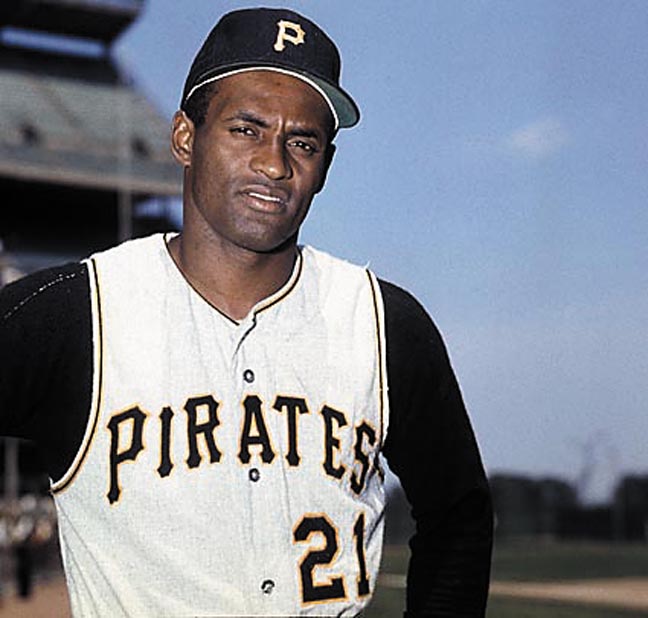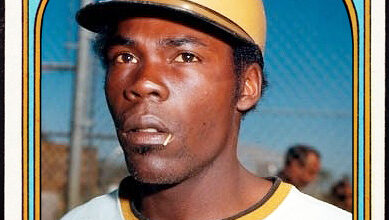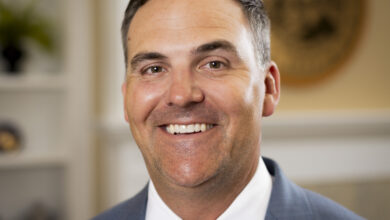
Can you think of three athletes whose stories are more inspirational than Henry Aaron, Roberto Clemente and Jackie Robinson? Me neither. Yet, as you probably know by now, the public schools in Duval County, Florida have banned some 176 books from its kindergarten-through-12th-grade libraries, including three illustrated children’s books: Henry Aaron’s Dream (by Matt Taveres), Thank You, Jackie Robinson (Barbara Cohen) and Roberto Clemente, Pride of the Pittsburgh Pirates (Jonah Winter and Raul Colon).
Meet the Duvals
OK, so maybe it doesn’t have the same ring to it as Meet the Fockers or Meet the Beatles. Duval County sits in the upper northeast region of Florida. Its biggest city is Jacksonville, where, ironically, the public school baseball field is named after Aaron. The county is named for William Pope Duval, the first civilian governor of Florida, who served from 1822-1834. He studied law and became a lawyer at age 19, marrying a year later. His son John Crittenden Duval was a writer whose Early Times in Texas is considered a classic. A granddaughter, Florence Duval West, was an accomplished poet who had two collections of poems published. One can only wonder how the Duval family would feel about the present doings in the county bearing their name. I can take a wild guess.
Felony book distribution?
All three books mention the racial discrimination the subject faced during his baseball career. The Florida law requires books in its schools to be free of discrimination “in such a way that an individual, by virtue of his or her race, color, sex or national origin, is inherently racist or oppressive, whether consciously or unconsciously.” Violating the law is a felony. That’s right, folks, a teacher can actually go to jail for giving a child a book about a baseball player.
It’s all part of Governor Ron DeSantis’s initiative to rid Florida of all so-called “woke” culture. Although he has not formally entered the race for President of the United States yet, DeSantis is thought to be the favorite to secure the Republican nomination. I would venture a guess this book-banning spree has nothing whatsoever to do with concern over the welfare of the children and everything to do with appealing to a certain political base while attempting to shape the children’s beliefs. After all, they’ll be old enough to vote before we know it.
The color barrier is broken
The type of baseball fan who frequents this site knows this stuff already, but for the benefit of any school-age Duval County residents who might be checking in, here’s some background. Robinson broke the “color barrier” in major-league baseball when he joined the Brooklyn Dodgers in 1947. Immediately Dixie Walker, a teammate from the deep south, circulated a petition to have him removed from the team. Walker was traded to the Pirates instead.
Robinson was the target of racist taunts and dirty play from opponents. He had been instructed by Dodgers general manager Branch Rickey not to fight back, for fear it might hurt any further integration of major-league baseball. Robinson had a 10-year career with the Dodgers and played on seven pennant winners, including the 1955 World Series champs. The Dodgers traded him to the New York Giants after the 1956 season but he retired instead of moving.
The people’s home run king
Robinson, Aaron and Clemente all faced discrimination in the south. There they were not allowed to stay in the same hotel or eat in the same restaurants as their white teammates. Aaron had already had a long, distinguished career with the Milwaukee, later Atlanta, Braves when in 1974 he challenged the all-time home run mark held by the legendary Babe Ruth. Some white fans objected to a black man daring to challenge a cherished record held by a white man. Some of them were probably not even old enough to have seen Ruth play.
Even so, Aaron was the target of death threats and received bags of hate mail. He saved all of this mail and reprinted some of it in his book, I Had a Hammer. It’s well worth reading if it has somehow escaped the county’s forbidden list. Of course, Aaron broke Ruth’s record with his 715th homer and amassed 40 more before calling it a career. His home run total was eventually surpassed by Barry Bonds in 2007. However, 2007 fell smack in the middle of the steroid era. Thus, to many (like me) Aaron remains the people’s home run champion.
The first Puerto Rican superstar
Clemente was the first Puerto Rican superstar in major-league baseball. Early in his career with the Pirates, while his teammates may not have been openly hostile to him, they treated him as an outsider. Clemente complained openly about his mistreatment by the press. His pride was misinterpreted as arrogance. He was mislabeled a hypochondriac for giving honest answers when asked how he was feeling. He was galled that the papers quoted him in his Puerto Rican accent while cleaning up the bad grammar of white players.
Clemente would thrive under the tutelage of Dixie Walker’s brother, Harry, the Pirates manager in 1966 when Clemente won his only Most Valuable Player Award. Later, Clemente made the 1971 World Series his personal showcase, leading the Pirates over the heavily favorite Baltimore Orioles. He would achieve the 3,000-hit plateau in 1972 before dying in a plane crash on a mission of mercy on New Year’s Eve.
Why anybody would think these tales of perseverance in the face of adversity would be harmful to children is beyond reason.
“Find out what they don’t want you to read”
All banned books in Duval County schools will be reviewed by a panel for appropriateness and restored to the shelves upon passing inspections. I wouldn’t get my hopes up, given what I suspect is the real reason behind the bans. I think back to the guardians of morality and arbiters of good taste who said my comic books and rock and roll records were bad for me as a kid. I’m also reminded of Tipper Gore’s initiative in the 1980s to label record albums and CDs that contained explicit language.
None of this, of course, would actually ever solve anything. When attempting to come to power, it’s easy to attack what kids like when proposing to solve the world’s problems. Kids can’t vote and it makes adults feel good to think they’re not part of any problem. It might even make some adults feel like they’re doing a great job as parents by going along with this nonsense. I’ll do my own parenting, thank you.
That said, I do agree with the provision in the Florida law that bans books containing sexual content. Let the kids hear about that stuff like I did — in the school cafeteria from a sixth-grade classmate.
This past January 18, author Stephen King tweeted, “Hey, kids! It’s your old buddy Steve King telling you that if they ban a book in your school, haul your ass to the nearest bookstore or library ASAP and find out what they don’t want you to read.” I would add, be sure to read A People’s History of the United States by Howard Zinn and Stamped From the Beginning by Ibram X. Kendi while you’re at it. That’ll show ’em.





